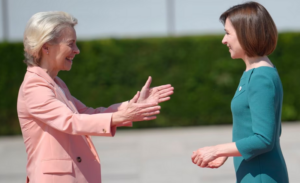 Romania ranks first in the European Union in terms of share of spending for food in the household budgets and ranks last in three categories of expenses: clothing and footwear, catering and insurance, according to the data of Eurostat, the statistical office of the EU.
Romania ranks first in the European Union in terms of share of spending for food in the household budgets and ranks last in three categories of expenses: clothing and footwear, catering and insurance, according to the data of Eurostat, the statistical office of the EU.
The shares of the various categories of expenditure, organized by the EU norms in 12 groups of goods and services are those from 2015 and are currently used for calculating the harmonized IAPC inflation index (which provides comparability among the EU countries) for 2017, according to the agreed methodology.
*
- Food
- Drinks, tobacco
- Clothes, footwear
- Housing costs
- Furniture, household appliances
- Motor vehicles
- Fuel, maintenance
- Transportation
- Communications
- Catering
- Hotels
- Insurance
*
In four categories of expenses (housing costs, furniture, household appliances and other equipment items, fuel and motor vehicle maintenance, transportation), the percentages are very close to the European average. Finally, five of the expense categories (yellow highlights in the table) show significant differences compared to the European standards.
Interestingly, if we transferred about a quarter of the amounts spent on drink and tobacco to clothing and footwear, we would match almost exactly the European average.
The same would happen if redirecting 40% of the amounts paid for telecommunications to the acquisitions of cars (which would not necessarily be more, but at least newer).
But what attracts more attention in terms of economic behavior are not the strictly material aspects, where we can debate on the income and the potential for harmonization with the West. The attention paid to the insurance segment clearly differs, with a ratio of 1 to 8 to the average and 1 to 14 to the maximum level.
Obviously, if we count the household income, much lower than the EU average and to the Netherlands, the champion of ensuring against unfortunate events (see the attention paid following the case of footballer Mihai Nesu who has been injured during a training of FC Utrecht, involving the consistent funds and local civic culture), we can notice that we have a problem with the insurance at least as big as the exaggerated share of food in the family budget.
By analogy with the suggestions of redirecting amounts between categories of spendings so that we can harmonize with the civilized Europe, it might be useful to go on the idea that we should eat 10% less to ensure our future 100% at the European standards (of course at a level corresponding to the amounts that we have available).
Otherwise, if we start from the idea that the convergence is strictly a matter of quantitative accumulation within a quite long timeframe, without considering the qualitative aspect of the money spent in a household, the EU integration will remain a meaningless word for our daily life.










